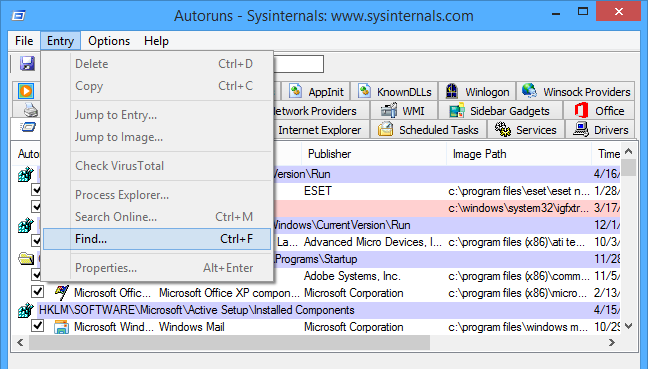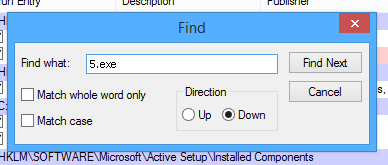So to go back to the 'possibly' useful aspect of a Potentially Unwanted Programs, the argument as to whether they are genuinely of use all comes down to how you feel about having something you didn't purposefully download sitting on your computer. There is somewhat of a gray area when it comes to Potentially Unwanted Programs: they are not dangerous per se, but they are not usually particularly useful either. – and as we said, they might just end up driving you more than a little nuts.
Are Potentially Unwanted Programs really malware?
To the never ending disappointment of PUP haters, I am sorry to say that technically speaking they are not malware. And that is because such programs weren't designed for the purpose of stealing your identity, corrupting your data or plundering your bank account. Roaming\5.exe is just a pop-up but that doesn't necessarily mean that it is something you want on your computer and the chances are that even the most innocent looking Potentially Unwanted Program could do you harm.
What can a PUP do?
A lot of people have a bit of a problem with Potentially Unwanted Programs purely because of the rather underhand way that they snuck onto your PC. PUPs don't make it obvious that they are installing themselves - after all they have an ulterior motive! That's because PUPs usually take the form of new home pages, browsers or tool bars and after all, most of us are generally pretty happy with the ones that we are already using – if we weren't we would make the decision to change them of our own accord, surely. That's why PUPs use these underhand tactics to sneak on to your machine – they know you wouldn't download them knowingly. AppData\Roaming\5.exe popup is simply an after math of adware and PUPS installation on your computer.
Is Roaming\5.exe really that bad?
In the grand scheme of things, it probably isn't but the problems start arising when you realize – and pretty quickly too – that these new so-called tools have not been designed with your user experience at the forefront but they are actually somewhat of a ploy by the program's developer to benefit him or her instead. I hate to break it to you, but your brand spanking new browser, home page or tool bar has actually been designed to screw up your Internet searches. That means that when you look for something on the internet, instead of delivering you the search engine results that you expected, you will instead be redirected (or misdirected that should probably read) to a site that the developer wants you to visit.
How do I stop this from happening?
Luckily, it's not rocket science. You just need to stay alert when you're installing programs or downloading files. It might not be fun, but it is well worth your time to take a few moments longer to actually read the End User License Agreement for mention of add-ons. Also check the tick boxes as these may have been pre-checked for you. Stay vigilant and you should be able to stop malware from sneaking its way onto your machine.
If the AppData\Roaming\5.exe error message appears on your computer, please follow the steps in the removal guide below. If you have any questions, please leave a comment below. Good luck and be safe online!
Written by Michael Kaur, http://deletemalware.blogspot.com
Roaming\5.exe Error Removal Guide:
1. First of all, download recommended anti-malware software and run a full system scan. It will detect and remove this infection from your computer. You may then follow the manual removal instructions below to remove the leftover traces of this malware. Hopefully you won't have to do that.
2. Download Autoruns for Windows and save it to your Desktop.
3. Launch autoruns.exe program (Vista/Windows 7/8 users right-click and select Run As Administrator).

4. Confirm that the "Everything" tab is selected. Then in the top menu, click Entry → Find... and type the file name 5.exe, then click Find Next. Alternatively, you can scroll through the list and look for any entry related to 5.exe.

5. If a line with 5.exe is found, confirm that the "Image Path" shows C:\Users\[UserName]\AppData\Roaming\ and then right-click on the entry and choose delete. They are usually yellow highlighted.
6. Close Autoruns and restart your computer when done.
7. Scan your computer with anti-malware software.
Remove ...\Roaming\5.exe Pop-up Error Message (Uninstall Guide)
4/
5
Oleh
soni agus


